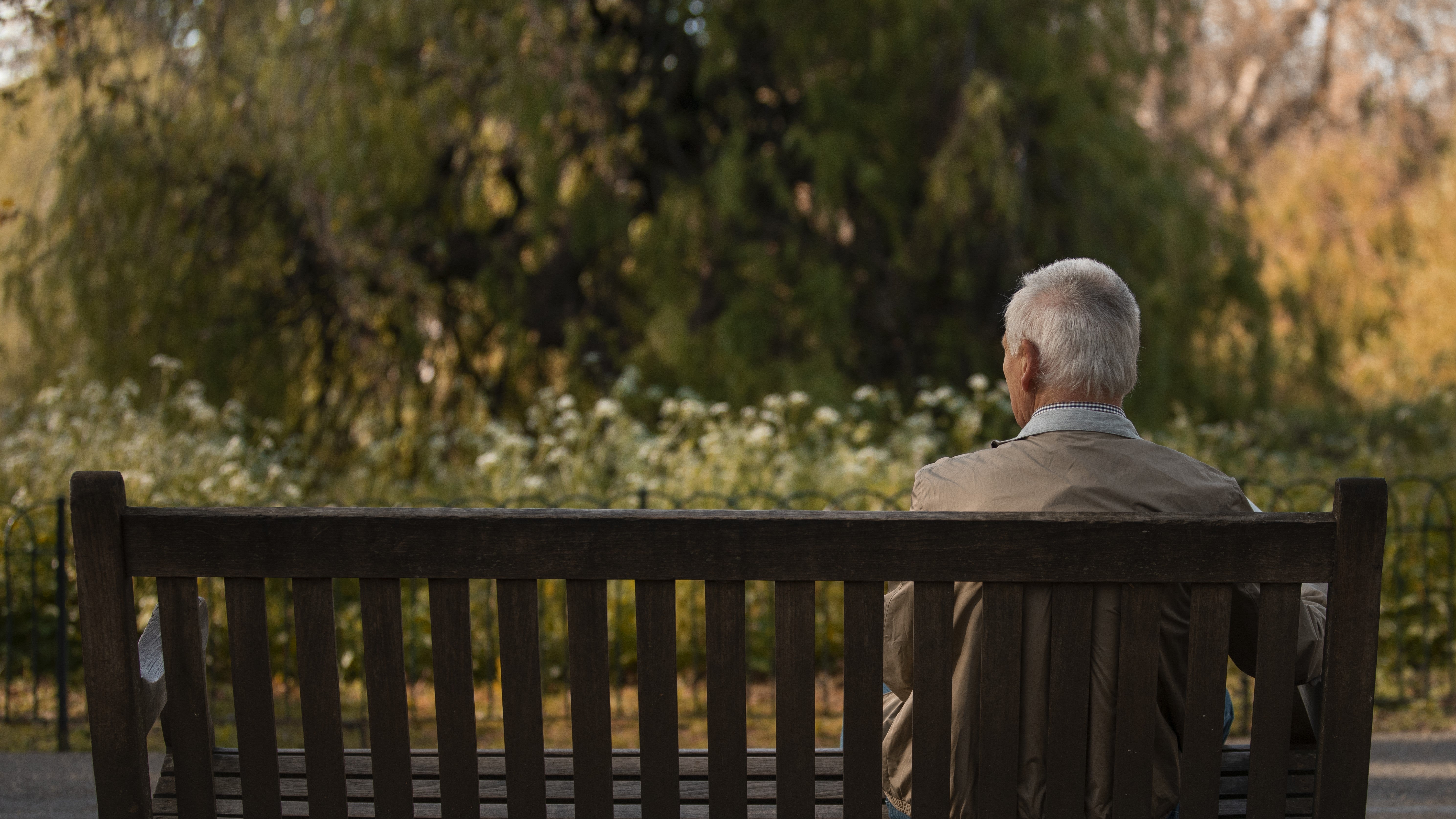
How to Prepare for Old Age Alone
Combatting lonliness, depression, and what comes with aging.
Author:START READING
Related Articles
- The Ultimate Guide to Aging in Place
- Aging in Place Statistics
- The Ultimate Aging in Place Checklist
- The Pros and Cons of Aging in Place
- Aging in Place Bathroom Design Ideas
- The Most Common Aging in Place Mistakes and How to Avoid Them
- How to Prepare for Old Age Alone
- Depression in Older Adults
27% of adults 60+ live alone in the U.S., translating to 16.7 million people.
If you plan to be a "solo ager" and grow old alone, it's vital to know the risks and take the proper steps to make it possible.
Being alone in old age puts you at significant risk of social isolation. A 2023 University of Michigan poll found that:
- 34% of seniors reported feeling isolated
- And 37% experienced a considerable lack of companionship.
The effects of social isolation can be detrimental to one's health.
Studies show that loneliness can be as harmful to your health as smoking. Loneliness can increase the risk of depression, anxiety, and dementia.
But don't let that scare you; aging alone successfully is possible. Below, we highlight the necessary steps to counteract the potential side effects of solo aging. These steps can help you best prepare for old age alone.

Plan for Financial Security
Did you know that nearly half of elderly Americans have not saved for retirement?
Not having financial security in old age can harm one's quality of life. It's vital to have the financial means in old age to support oneself, especially if retirement is a goal. When preparing for old age alone, consider utilizing these financial tips:
Know How Much You Need to Save for Retirement
Consider your expenses and create a monthly cost of living. This will tell you how much you'll need to live off of in retirement. It's vital to save wisely and consider potential emergency expenses from potential health problems.
Cut Excess Spending
Take the time to gather a list of your expenses and cut any excess or unnecessary ones.
Look into Elderly Assistance Programs
Many low-income seniors qualify for financial assistance through the government and other nonprofits. They can help you with rent assistance, food, housing, and more. Read this article from Benefits.gov for a list of available resources.
If you're one of those seniors who have not saved for retirement, consider these options to offset your expenses:
- Downsize to a smaller, more affordable home
- Get a roommate
- Consider part-time work
- Live on less by cutting excess spending

Maintain Your Physical and Mental Health
With old age comes physical health problems. Considering that 94.9% of adults 60+ have at least one chronic health condition, it's vital to maintain physical health to age well. And because being alone puts one at risk of loneliness, it's essential to acknowledge and take the steps toward good mental health. Consider these tips:
Schedule Regular Checkups and Screenings with a Doctor
Doing this ensures you stay on top of your health and catch any potential conditions before they worsen. MayoClinic recommends that seniors have at least one medical check-up per year.
Keep Yourself Physically Active
The U.S. Department of Health and Human Services found that only 1 in 4 adults meet physical activity guidelines for aerobic and muscle-strengthening activities. Even worse, the CDC has found that 28% of U.S. adults 50+ are physically inactive. Being physically active throughout life is vital to healthy aging and preventing disease, disability, and premature death.
Maintain a Healthy Diet
What you put into your body is essential. When considering your diet, emphasize healthy portion control. Include critical elements such as fruits, vegetables, whole grains, lean protein, and healthy fats. Do your best to avoid processed foods and foods high in sodium.
Address Any Mental Health Concerns (Present and Future)
It's vital to address any mental health issues you may have before they worsen. Check with your doctor for any family history of Alzheimer's, depression, or any other conditions. And if you're experiencing isolation and loneliness, seek out a mental health professional to help you cope.

Build a Strong Support System
Growing older alone with a support system can be a significant advantage. Having people to connect and spend time with can be a healthy way to stay connected, prevent loneliness, and remain active.
It's important to know that just because you may be growing old alone with no family doesn't mean you must be lonely. There are many outlets and options available to counteract this. Consider these ideas:
Cultivate Relationships with Friends
Experts project that the number of older adults living alone will increase. While that may seem daunting, it can present an excellent opportunity for making friendships. Seeking relationships with others in the same scenario can be a beacon of hope. Connect with others who share similar interests and want to remain socially connected to form your support system.
Explore senior support groups and activities. Many senior-specific programs for older adults offer support and engaging activities. These can be excellent outlets for getting outside your home, building relationships, and engaging with others.
Volunteer for Nonprofit Organizations
Volunteering can be an excellent outlet to bring purpose and engagement into your life. A 2017 study by UnitedHealthcare found that:
- 93% of volunteers reported an improved mood
- 79% reported lower stress levels
- And 88% reported increased self-esteem
The act of helping triggers endorphin release, which contributes to feelings of happiness and well-being.
Consider Senior Living Communities
Senior living communities (often advertised as 55+ living) offer an excellent outlet for older adults living alone. They're specialized communities that promote independent living while providing care and social inclusion for older adults.

Create a Safe and Accessible Living Environment
With aging comes physical and cognitive decline. This can make a typical living environment difficult and dangerous.
An estimated 10% of modern homes are aging-ready, presenting a challenge for older adults. Because of this, it's vital to adapt your living environment to be safe and accessible as you age. Consider these tips:
Modify Your Home for Fall Prevention
One-third of adults 65+ experience a fall each year, and the chance of falling increases with age. Preventative measures include installing grab bars, removing clutter, and utilizing mobility aids around the house.
Consider Downsizing to a Senior Friendly Home
Larger homes with a second story can be challenging for seniors to move around in and maintain. It may be worthwhile downsizing into a smaller house with a single story.
Have a Transportation Plan
Studies have found that people aged 65+ are at a greater risk of a fatal crash. The combination of impaired vision and cognitive decline can make driving challenging. Because of this, it's crucial to have a plan should you be unable to drive anymore. You can do this by using ridesharing services like Uber or senior shuttles.

Keep Yourself Engaged and Purposeful
Numerous studies have found that retired seniors struggle with having purpose and meaning in life. Consider these findings:
- A 2020 AARP study found that 31% of retirees reported feeling a loss of identity after leaving the workforce.
- A study of roughly 7,000 adults aged 51 to 61 found that those without a sense of purpose were almost twice as likely to die within four years.
- A meta-analysis of 70 studies found a decline in purpose in life to be stronger in older age groups.
The combination of not working and social isolation can bring a decline in engagement and purpose. Because of this, it's important to prioritize keeping yourself engaged and purposeful. Consider these ideas:
Explore Hobbies and Interests
The beauty of old age and retirement is the opportunity to explore things you've always wanted to do. Consider taking up new hobbies and interests that spark your curiosity and joy.
Take Up New Learning Opportunities
Numerous studies have found continued learning to have significant mental benefits. A 2014 study found that learning multiple skills improved working memory and executive function in older adults. A 2017 review discovered that learning new things enhanced cognitive function and contributed to reducing feelings of depression and anxiety in older adults.
Travel and Explore New Places
Taking a vacation can be a great way to reduce stress and maintain a life purpose. One study found that men who take annual vacations are 32% less likely to die from heart disease. Another found that women who take vacations at least twice a year are less stressed and less likely to experience depression.
Conclusion
While growing old without family can be challenging, it offers a world of freedom, opportunity, and independence. The wealth of resources and programs allows one to make the most of growing old alone.
To age in place alone, it's best to follow the tips mentioned in this article:
- Have a plan for financial security
- Maintain your physical and mental health
- Build a strong support system
- Create a safe and accessible home
- And keep yourself engaged and purposeful
Following these steps can make your golden years easier and more fulfilling.
Aging in Place Resources
About the Author

Brandon Landgraf is the Digital Marketing Manager for Carex Health Brands. He finds passion and fulfillment in creating content that enhances, improves, and enlivens others' quality of life. All of his written work is formulated to not only offer essential advice and tips but back it with proven studies and experts. His mission is to connect with readers and provide steps to make their lives better.
You can connect with him on LinkedIn here.
About Carex Health Brands
Carex is your one-stop shop for home medical equipment and for products that assist caregivers with providing the best possible support and care for their loved ones. Carex Health Brands has been the branded leader in in-home, self-care medical products for over 35 years. Our goal is to improve the lives of our customers by bring them quality products that bring dignity back to their lives. With our three nationally distributed brands, Carex Health Brands serves national, regional and independent food, drug and mass retailers along with wholesalers, distributors and medical dealers.

